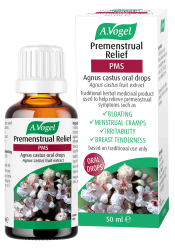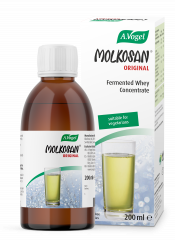When is bloating more likely to become a problem for women?
Everyone can feel bloated once in a while, but for us ladies, it’s often more of a recurrent problem! We often worry about what we’ve eaten, but what if something else is at the root of the cause which isn’t so easily managed? Hormones!
Whether it’s PMS, pregnancy or in the lead up to menopause, changing hormones can cause havoc for our digestive tract. Let me explain some common scenarios when hormones could be contributing to bloating:
PMS
If you find your symptoms are more pronounced at certain times of the month and seem to be following specific patterns then it could be down to a hormone imbalance or PMS. You’re female sex hormones oestrogen and progesterone fluctuate in specific patterns each month in order to initiate ovulation and eventually give you your period. However, if you suffer from a hormonal imbalance, these hormones could potentially give rise to troublesome symptoms which isn’t part of the plan!
Menopause
Most women are aware of ‘the change’ or the approach to the dreaded menopause when a number of symptoms can potentially crop up. Bloating is a common symptom during this time and unfortunately often at the root of the problem, surprise surprise, are changing hormones!
Pregnancy
Just like menopause, during pregnancy it’s accepted that we’ll experience lots of hormonal changes and as a result, some symptoms may crop up. And you guessed it, bloating is often one of them.

Which hormones are at the root of the cause?
So, it’s all very well and good to say that hormones are most likely to be behind our bloating woes, but what’s really going on and what can be done to help? Here I go in to a little more depth to explain exactly what’s likely to be going on:
PMS
Both oestrogen and progesterone receptors line the length of our digestive tract, so depending on what’s happening with your hormones at different times of the month, or your life, you may experience different symptoms as these are activated (or not!). If you notice patterns emerging in your monthly symptoms then it’s likely that hormones are at the root of the cause. Let’s talk through some likely scenarios:
Progesterone is often known as our ‘calming’ female sex hormone. However, if it becomes over-dominant then it can slow things down too much and we can end up with a sluggish gut! After ovulation, during what we call the luteal phase, oestrogen levels drop off quickly and progesterone levels are higher relative to this. This means in the two weeks prior to your period (prime PMS territory!) you may notice that you feel more bloated and find that you are going to the toilet less often, as a result of the balance of your hormones.
Then, nearer the end of your cycle, progesterone levels finally plummet which triggers your period. However, with levels of this hormone falling fast, the ‘calming’ influence also hits rock bottom, and often women can experience diarrhoea during this time. Then in many cases these more erratic bowel movements can also contribute to bloating too... ever feel like you can’t win? Despite hormones being the likely cause of all these issues, there are still some steps you can take to help manage your symptoms as I explore a little later on.

Menopause
During menopause a number of symptoms crop up as a result of fluctuating levels of hormones, but on the whole, oestrogen levels are dropping, which seems to be the main culprit.
Lower levels of oestrogen can be problematic for a number of reasons. Low oestrogen means that progesterone levels are higher relative to this. Just as with younger women who experience a sluggish gut in the lead up to their period, high progesterone can slow things right down during this time. As the gut slows, women often feel more gassy which of course can contribute to bloating.
Interestingly, oestrogen is also important for supporting the production of bile from the gallbladder. Bile helps to stimulate peristalsis in the gut, the unique wave-like contractions which keep everything moving along nicely. So, if the production of bile production slows at the hands of low oestrogen, your gut can feel a whole lot more bloated.
Then, as oestrogen levels fall, (and stress levels also ramp up in many cases) weight gain around the middle is also common in menopause. Click the link for some top tips to help keep your tummy trim, as this will only add to your bloating woes in many cases.
Unfortunately, low oestrogen symptoms can also occur in younger women (not just in the lead up to menopause), so if infrequent periods, low mood and problem skin are getting you down alongside the bloating then it could suggest you have a slight hormone imbalance going on.
Pregnancy
The hormonal changes occurring during pregnancy can unfortunately also contribute to bloating, as well as you having your baby bump to contend with! However, this is all quite natural and actually even protective! Your gut slowing helps to maximise the absorption of essential nutrients from your diet in order to help support your baby’s development.
Top tips for deflating a bloated tum
Here I outline what can be done at home to help manage your symptoms going forward:
- First and foremost, let’s address the hormone imbalance if this is a likely contributing factor! – depending on exactly what’s going on, different herbal ingredients may help to get your symptoms under control. If your symptoms seem to crop up at the same time each month then it suggests that your hormones are the cause. If more typical symptoms of PMS including heavy, painful periods, sore breasts and mood swings go hand in hand with symptoms of bloating, then Agnus castus may be the remedy for you. If light infrequent periods are more of an issue, or you suffer from bloating in the lead-up to menopause, then a source of soy isoflavones could instead help to gently support your oestrogen levels. If you’re pregnant, then unfortunately we can’t do anything about the hormonal changes as these are all par for the course, but if your symptoms are really getting you down then your midwife would be the best person to ask for advice on diet, lifestyle or suitable constipation remedies. Remember, in any case, if your symptoms of bloating are new or severe you should get this checked with your doctor
- Although hormones are likely to be at the root of the cause in many cases, it’s important not to forget about the influence your diet can have too. Certain hormonal changes may make us more inclined to make poor food choices, especially if we are feeling uncomfortable, fed up or emotional already, but try not to give in! Certain foods can make us more bloated at the best of times so it’s helpful not to overdo it. Consider foods containing FODMAPs (many are healthy but just watch your portions) and options like fizzy juice or chewing gum are just asking for extra bloating. If carbs and sweet treats are your downfall, stock up on a dietary source of L+ lactic acid to help support the metabolism of carbohydrates in your gut
- As well as diet, lifestyle habits should also be considered – aim to keep your water intake up to help avoid dehydration which will only make symptoms of water retention worse. Then, did you know that gentle exercise may also help? Nothing too extreme as this will only stress your body further during this period of hormonal turmoil, but some light intensity exercise can help to gently massage your digestive tract and keep things moving along. Plus, moving more is good for your mood and self esteem, which is always a bonus!
- Maximise your magnesium – Magnesium acts as a muscle relaxant so is the perfect ingredient if you’re feeling bloated. It can not only help to relax gripping period cramps, but it may also help to get a sluggish gut moving along too, I often recommend 200-400mg daily to peri-menopausal or PMS-prone women.
- If the bloating is a direct symptom of other digestive complaints such as indigestion, then a digestive remedy such as Digestisan could also be one to include to help target symptoms.







